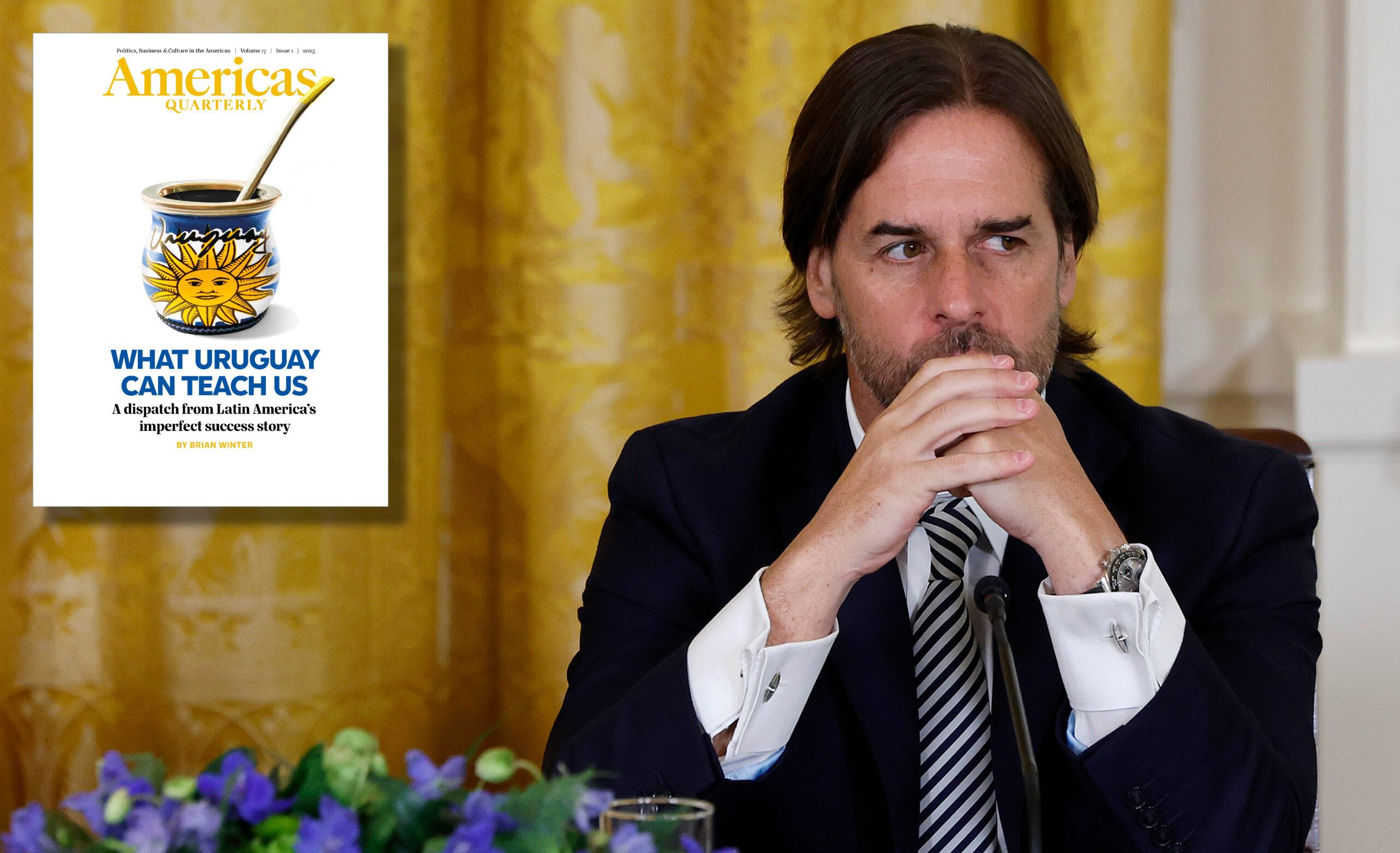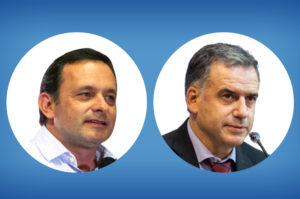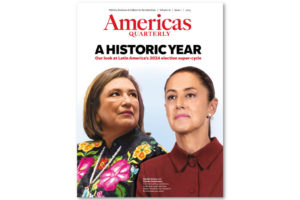This article is adapted from AQ’s special report on Latin America’s election super-cycle
In his inaugural address in March 2020, Uruguayan President Luis Lacalle Pou set a benchmark for measuring his own government’s performance. “If by the end of my term, [Uruguayans] are freer [than today], we will have done things right,” he said.
Now, as his term draws to a close and Uruguay prepares for elections in October, how has the country fared in approaching that goal?

Meet the candidates in Uruguay’s 2024 election
Macro indicators show that Uruguay’s big picture has remained largely stable—with little variation other than at the height of the pandemic in 2020. In July 2023, unemployment was at 7.8%, the same figure as five years before. While GDP growth decelerated in 2023, largely the consequence of a historic drought, the IMF forecasts an above-trend 3.2% growth rate for 2024. Measured by income, poverty has increased 2% when compared with five years ago. What some herald as remarkable stability, others see with concern, as 37% of the electorate have a pessimistic economic outlook.
Last year, in a special report on Uruguay’s imperfect success story, Americas Quarterly described the way change is often pursued a la uruguaya in the halls of Montevideo: that is, slowly, but with an emphasis on consensus-building, such that once passed, reforms are most often definitive. In light of Lacalle Pou’s promises for greater freedom, analysts see a link between stable—or stagnant—economic indicators and a perceived lack of commitment to deeper, structural reforms for greater growth. By pursuing reform in an excessively a la uruguaya manner, in other words, the government is drawing criticism from some market- and business-friendly sectors.
In contrast, the Uruguayan opposition led by the left-wing coalition Frente Amplio (FA) is dissatisfied with the changes advanced by the Lacalle Pou government—perceiving a weakening of Uruguay’s welfare state and social safety net. A case in point is a recent initiative to undo the government’s pension reform through a referendum. The uptick in poverty noted above, and increased demand at community-run soup kitchens, are often linked to the current government’s policies.
Besides the economy, Uruguayans’ biggest concern is public safety. In 2019, Lacalle Pou’s Partido Nacional (PN) made inroads with voters, as 2018 saw a record high number of homicides. The FA, which governed from 2005 to 2020, has rarely employed the language of mano dura in the past. Yet the lack of substantive improvements in public safety, with more than 10 homicides per 100,000 inhabitants since 2018 and roughly the same number of homicides in 2022 as in 2019, is currently seen as an opportunity by the opposition. While better than most countries in the region, these rates are worse than those of neighbors like Argentina, Chile, Paraguay or Peru.
If the contours of debate on economic policy are fairly predictable, public safety may prove fertile terrain for unconventional warfare. With Lacalle Pou’s government embroiled in a scandal involving alleged irregularities in the granting of a Uruguayan passport to a narco boss, the opposition has seized the opportunity to accuse the government of leniency toward organized crime with regard to public safety. This, in turn, led to a showdown between FA presidential candidate Yamandú Orsi and Lacalle Pou, where the president criticized the FA’s candidate for a lack of “manners” in addressing this topic.
A generational transition
With October’s elections approaching, Uruguay is set to complete a generational transition that is unprecedented since its return to democracy in 1985. Often praised for its history of open and free elections, relatively low corruption levels, and high press freedom indicators—along with its stable economic picture and robust welfare state—one important part of Uruguay’s success story has often gone unnoticed. Over 35 years of democracy, the country’s top political leaders have remained largely the same.
The generational transition began to take shape in 2014, when at the age of 40, Lacalle Pou successfully challenged influential figures within his party, including his father, Luis A. Lacalle Herrera, president from 1990 to 1995. Lacalle Pou secured the presidency in 2019 by defeating the FA’s nominee, Daniel Martínez. These elections marked a turning point for the Uruguayan left, with the absence of seasoned leaders on the presidential ticket for the first time in 25 years. Martínez’s failure to consolidate leadership after the 2019 primary, as well as challenges in the political and ideological landscape of the left, further intensified the need for the FA to redefine its direction. Montevideo’s mayor Carolina Cosse (61) and Canelones’ mayor Yamandú Orsi (56) are the frontrunners competing for the FA’s nomination in 2024.
Lacalle Pou’s precocious elevation to leader means that he is used to dealing with a set of political actors who are no longer active. With a likely run in 2029 in the cards for him, and a new crop of political leaders bound to fully replace the old guard on the left, how these politicians process differences and resolve emerging conflicts remains one of the biggest unknowns of 2024 and beyond—and, arguably, one of the main stress tests for Uruguay’s democracy.
—
Caso Bello is a freelance writer, analyst and lecturer at the University of Ottawa








